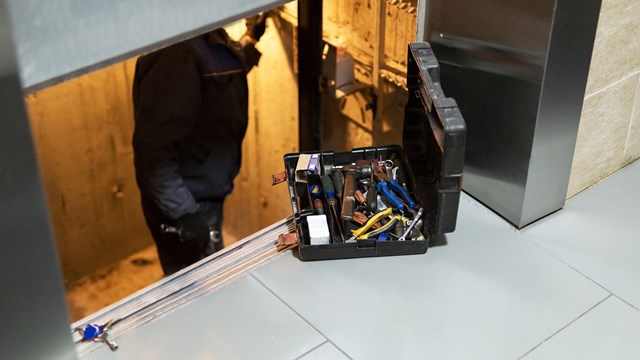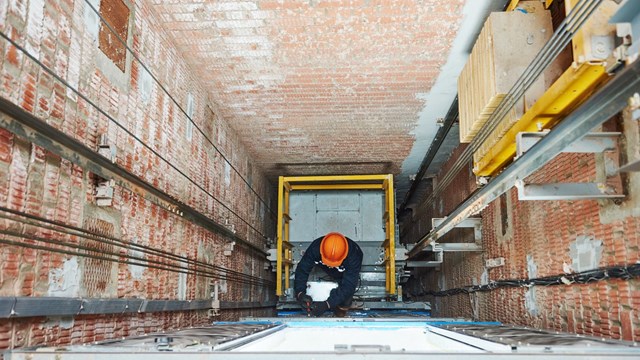As attorneys who represent a large number of cooperative and condominium buildings, we’re seeing more and more often that, instead of attracting community-oriented individuals, New York City condominium and cooperative buildings often attract residents who are ill-suited for communal living. Here’s one story about two problematic condominium unit owners who cried “wolf” in their building one too many times.
For several years our client, a Board of Managers of a condominium, received numerous and varied complaints from a difficult—to say the least—couple who owned a unit on a high floor of the building (we’ll call them the Smiths). The Smiths’ first set of complaints claimed that they were constantly subjected to excessive noise emanating from the building’s elevators, the banks of which abutted their apartment. Of course, no other residents in the Smiths’ apartment line or on their floor shared their complaint. In response, members of the board conducted their own investigation of the Smiths’ claims and determined that there was no problem whatsoever. Notwithstanding, the Smiths continued to complain. At that point, the board retained an acoustical engineer to take sound meter readings near the elevator to determine what, if any, steps should be taken to resolve the situation. As was expected, the acoustical engineer confirmed the board’s suspicion that the noises from the building elevators were comfortably within an acceptable range. After being informed of these results, the Smiths abruptly abandoned their complaint.
A short time later, the Smiths became embroiled in a series of altercations with building staff and management. In the most disturbing instance, the Smiths were the last of all of the building’s unit owners to schedule an appointment for the condominium to perform its annual HVAC servicing. After management made several attempts to accommodate the Smiths’ schedule and the Smiths finally agreed upon a date and time for the service to be performed, they denied building staff access to their apartment. Thereafter, Mrs. Smith accosted the building’s superintendent and screamed at him in public for failing to accommodate a change in her schedule. The next day, Mr. Smith cornered and berated the superintendent in front of the superintendent’s young son. Not surprisingly, after the board investigated the Smiths’ claims that the staff was ignoring them and that their “reasonable” scheduling requests were not honored, the board advised Mr. and Mrs. Smith that it found no merit to their claims. Unhappy with the board’s response, the Smiths retained an attorney who threatened to sue the building and the board. Ultimately, the board banned the Smiths from dealing directly with any of the building’s staff and no lawsuit was ever filed.
Most recently, in early September 2008, building management received a frantic call from Mrs. Smith who demanded a blank incident report to report an assault against her by one of the building’s window contractors. According to Mrs. Smith, the contractor physically attacked her in front of not only the superintendent, but Mrs. Smith’s elderly mother. However, shortly following Mrs. Smith’s call, the superintendent called management with a diametrically different story. He reported that Mrs. Smith actually denied the contractor access to her apartment. According to the super, when the contractor advised Mrs. Smith that his next visit to her apartment would be at her own cost (the initial visit was paid for by the condominium) Mrs. Smith followed the contractor into the building’s service elevator where she proceeded to scream at, punch and kick him. Faced with a classic case of “he said–she said,” the managing agent quickly accessed the building’s surveillance equipment and reviewed the building’s video surveillance tapes to determine what, exactly, occurred. Unfortunately for Mrs. Smith, the footage clearly proved that she was lying once again. The security tapes conclusively showed Mrs. Smith follow the building contractor, superintendent and porter into the elevator. Once inside, she stuck her finger in the contractor’s chest, shoved, punched and kicked him several times.
Having proof of what really transpired, we advised Mrs. Smith that, while she was free to file a building incident report, the entire scene was captured on video, which showed her assaulting the contractor. We also advised her that, through the videotape, we were able to identify and contact all witnesses who later confirmed the events as they appeared on tape.
Last but not least, we further advised Mrs. Smith that, at the contractor’s request, the tape was being sent to the New York City Police Department and the Manhattan District Attorneys’ office.
Since then, the board hasn’t heard “boo” from the Smiths.
In summary, here are two words of caution for difficult residents and boards. For residents, be careful, you never know who’s watching you. For boards, be on the lookout. We recently heard that the Smiths have listed their apartment for sale and are looking to relocate to another condominium on the Upper East Side.
Jeffrey S. Reich, Esq. and Steven D. Sladkus, Esq. are attorneys at Wolf Haldenstein Adler Freeman & Herz LLP in New York City.







Leave a Comment